The atmosphere in Cillín Hill Mart in Kilkenny was febrile by the time Charlie McConalogue arrived on Thursday evening for a CAP meeting.
Word had reached the gathered angry farmers that the minister had been given a bit of a kicking in Tullow at that afternoon’s initial meeting.
In fairness, he seemed to arrive refreshed and was his usual engaging self despite that first bruising meeting.
Over the next nearly four hours, it was hot and heavy, with very good points being put to him by people from the floor.These were a mixture of farmers of no affiliation and local and national IFA representatives, with a smattering of other affiliations making themselves known.
Central issue
The key arguments centred around the suckler payments proposed. When taken in tandem with the direct payment cuts most cattle farmers in this part of the country would experience from the minister’s decisions, as Francie Gorman put it, “you want to put us all on the average payment. Minister, a highly stocked suckler or beef farmer can’t survive on the average direct payment.” That’s it in a nutshell.
The October surprise
It’s indicative of the information dump that was unloaded by Minister McConalogue on Wednesday morning that it was the next day before anyone realised that an elevated 60% level of TAMS funding was being made available for women farmers as an inclusion measure.
In US politics, they speak of the October surprise when on the eve of their presidential election something dramatic happens.
We’ve just had an Irish political October surprise. The press conference, announced late on Tuesday evening for early the next morning, was supposed to be about level of co-funding for the Pillar II farm schemes funding for the next CAP. The Taoiseach would be there, this was an important moment.
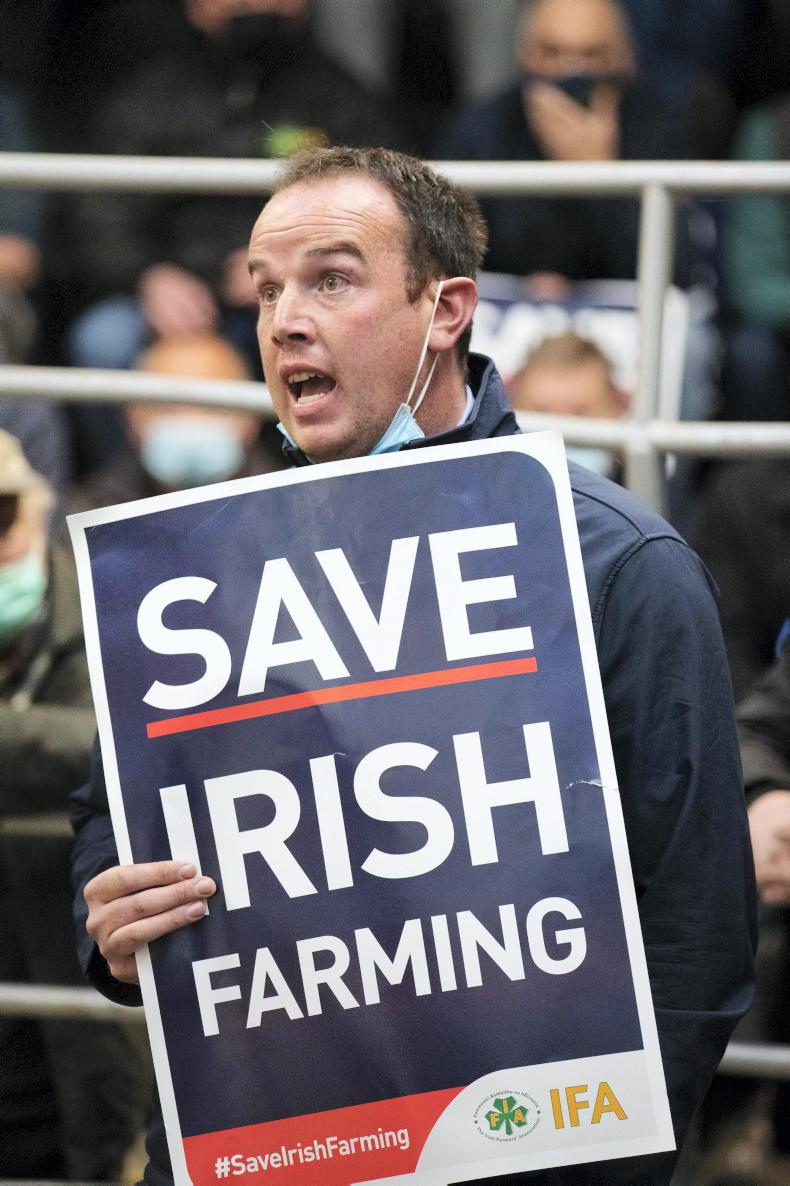
Kildare IFA chair Thomas O’Conner addresses Minister for Agriculture Charlie McConalogue at Tullow Mart. \ Finbarr O’Rourke
However, when Micheál Martin made some introductory remarks and handed over to his Minister for Agriculture, things escalated quickly.
The minister quickly announced that he had made his decisions regarding direct payments. CRISS (frontloading) would be at 10%, Eco schemes would be at 25%, convergence would take place at 85%, but not before a further 3% was removed from the pot for young farmers, €7m a year for the Protein Aid Scheme, and, finally, 3% of what remained for the National Reserve.
Even the press were surprised. Well, the few specialist agricultural journalists in the room were stunned. The political reporters from the national press had no interest in any of this. They asked a few questions about whether the national herd would or should be cut, with one question of Pippa Hackett wondering if exporting milk powder to China went against her principles. They mainly focused on trying to hog the conference asking the Taoiseach about COVID-19 restrictions.
I was left wondering if a major announcement about any other such important sector of our economy would be treated so disdainfully. Of course, we are dealing with pandemic, but that’s an ongoing and evolving situation.

IFA vice-president Brian Rushe challenges Minister for Agriculture Charlie McConalogue at Kilkenny Mart. / Philip Doyle
This was a once in a decade announcement of the entire package of farm programmes at the very moment that farming is facing the extraordinary challenge of tackling its carbon footprint to reduce our impact on the environment. It really mattered
Room left
Is there any room left for compromise? It would appear so from Kilkenny. The minister vowed to find ways to make eco schemes more accessible to farmers, although he seemed set on 25%.
The numerous calls for the massive €260m organic sector funds to be transferred over seemed to draw a suggestion that, if unused, they might be revisited.
The suggestion that the Green Party was behind that measure, and indeed was the guiding hand of the whole package, drew a flash of genuine anger from McConalogue. “There’s only one person in charge of the Department of Agriculture, Food and the Marine, and you’re looking at him,” he said.
And on CRISS, former IFA president John Bryan, who was so involved in the Ciolos reform negotiations, and knows a thing or two about detail, said that the decision Ireland had made to limit payments to a maximum of €66,000 opened up the possibility of CRISS being 5%.
The minister has since Wednesday given the impression that he had little choice but to impose 10% CRISS, but had opted to pay that money out on the first 30ha to minimise the blow on those paying the most into the scheme.
If Bryan is right, and opting for the lowest possible ceiling (we could have gone as high as €100,000) counts as some of the required transfer of funds from larger to smaller farmers, the game could be afoot.
Overall, I was left with the impression that the IFA had finally found its A game, but that for the farmers of Kilkenny and all those most negatively affected by the proposed reforms, it might be too late.
The atmosphere in Cillín Hill Mart in Kilkenny was febrile by the time Charlie McConalogue arrived on Thursday evening for a CAP meeting.
Word had reached the gathered angry farmers that the minister had been given a bit of a kicking in Tullow at that afternoon’s initial meeting.
In fairness, he seemed to arrive refreshed and was his usual engaging self despite that first bruising meeting.
Over the next nearly four hours, it was hot and heavy, with very good points being put to him by people from the floor.These were a mixture of farmers of no affiliation and local and national IFA representatives, with a smattering of other affiliations making themselves known.
Central issue
The key arguments centred around the suckler payments proposed. When taken in tandem with the direct payment cuts most cattle farmers in this part of the country would experience from the minister’s decisions, as Francie Gorman put it, “you want to put us all on the average payment. Minister, a highly stocked suckler or beef farmer can’t survive on the average direct payment.” That’s it in a nutshell.
The October surprise
It’s indicative of the information dump that was unloaded by Minister McConalogue on Wednesday morning that it was the next day before anyone realised that an elevated 60% level of TAMS funding was being made available for women farmers as an inclusion measure.
In US politics, they speak of the October surprise when on the eve of their presidential election something dramatic happens.
We’ve just had an Irish political October surprise. The press conference, announced late on Tuesday evening for early the next morning, was supposed to be about level of co-funding for the Pillar II farm schemes funding for the next CAP. The Taoiseach would be there, this was an important moment.

Kildare IFA chair Thomas O’Conner addresses Minister for Agriculture Charlie McConalogue at Tullow Mart. \ Finbarr O’Rourke
However, when Micheál Martin made some introductory remarks and handed over to his Minister for Agriculture, things escalated quickly.
The minister quickly announced that he had made his decisions regarding direct payments. CRISS (frontloading) would be at 10%, Eco schemes would be at 25%, convergence would take place at 85%, but not before a further 3% was removed from the pot for young farmers, €7m a year for the Protein Aid Scheme, and, finally, 3% of what remained for the National Reserve.
Even the press were surprised. Well, the few specialist agricultural journalists in the room were stunned. The political reporters from the national press had no interest in any of this. They asked a few questions about whether the national herd would or should be cut, with one question of Pippa Hackett wondering if exporting milk powder to China went against her principles. They mainly focused on trying to hog the conference asking the Taoiseach about COVID-19 restrictions.
I was left wondering if a major announcement about any other such important sector of our economy would be treated so disdainfully. Of course, we are dealing with pandemic, but that’s an ongoing and evolving situation.

IFA vice-president Brian Rushe challenges Minister for Agriculture Charlie McConalogue at Kilkenny Mart. / Philip Doyle
This was a once in a decade announcement of the entire package of farm programmes at the very moment that farming is facing the extraordinary challenge of tackling its carbon footprint to reduce our impact on the environment. It really mattered
Room left
Is there any room left for compromise? It would appear so from Kilkenny. The minister vowed to find ways to make eco schemes more accessible to farmers, although he seemed set on 25%.
The numerous calls for the massive €260m organic sector funds to be transferred over seemed to draw a suggestion that, if unused, they might be revisited.
The suggestion that the Green Party was behind that measure, and indeed was the guiding hand of the whole package, drew a flash of genuine anger from McConalogue. “There’s only one person in charge of the Department of Agriculture, Food and the Marine, and you’re looking at him,” he said.
And on CRISS, former IFA president John Bryan, who was so involved in the Ciolos reform negotiations, and knows a thing or two about detail, said that the decision Ireland had made to limit payments to a maximum of €66,000 opened up the possibility of CRISS being 5%.
The minister has since Wednesday given the impression that he had little choice but to impose 10% CRISS, but had opted to pay that money out on the first 30ha to minimise the blow on those paying the most into the scheme.
If Bryan is right, and opting for the lowest possible ceiling (we could have gone as high as €100,000) counts as some of the required transfer of funds from larger to smaller farmers, the game could be afoot.
Overall, I was left with the impression that the IFA had finally found its A game, but that for the farmers of Kilkenny and all those most negatively affected by the proposed reforms, it might be too late.






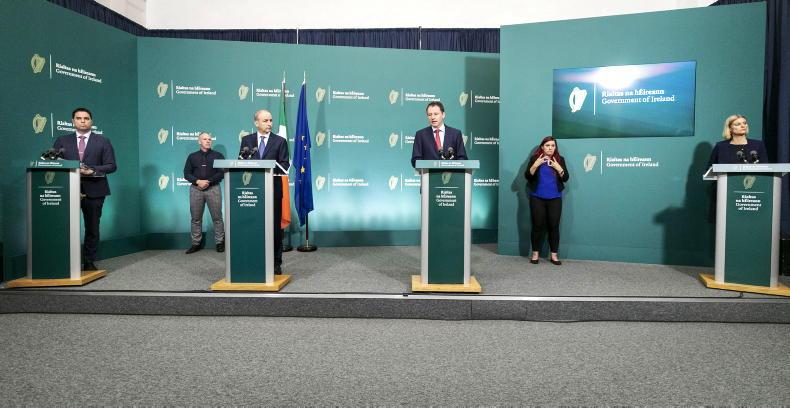

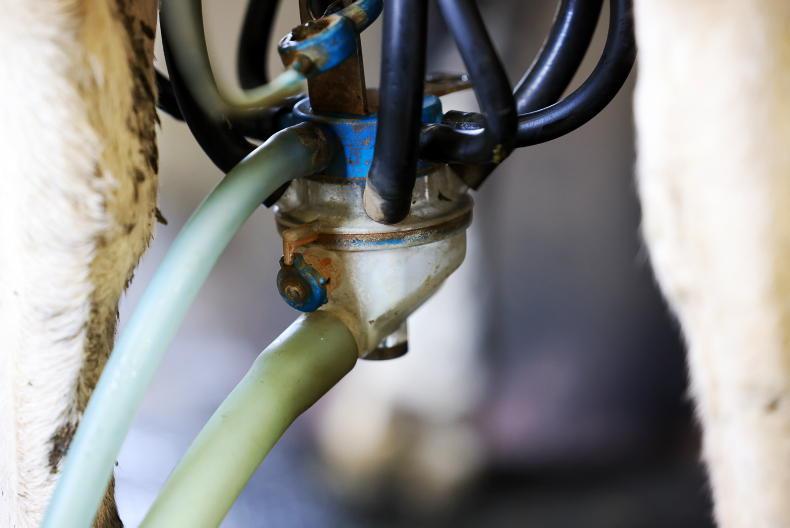
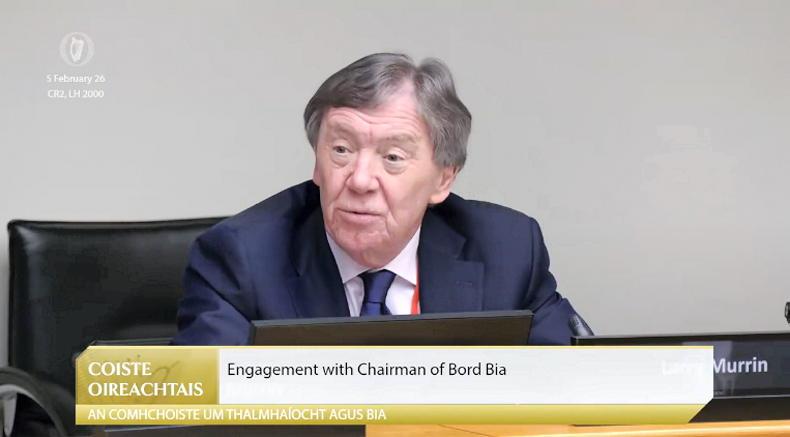
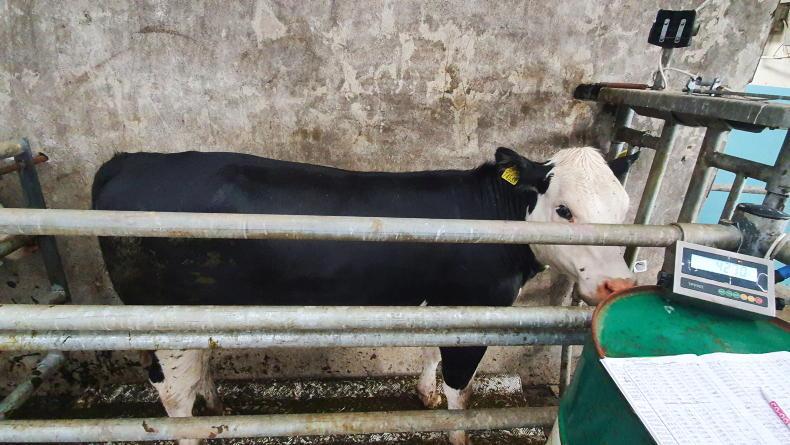
SHARING OPTIONS